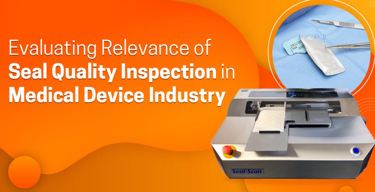Evaluating Relevance Of Seal Quality Inspection

Talking about medical devices, ensuring seal quality or seal strength of sterile medical device packaging are extremely crucial as well as highly regulated. Medical device package seal contains a flexible barrier which is joined to the rigid container through an advanced adhesive. A defect in the seal such as an incomplete or weak seal can initiate leaks, contaminating the product and reducing its shelf life. Hence, for quality control purposes, seal quality inspection of medical device packages is mandatory.
Historically, manual inspection was the most popular method used to inspect seal defects. Although this is covered by an ASTM method (ASTM F1886), it lacked accuracy and reliability in terms of test results. “There is a huge shift in the industry towards deterministic and quantitative test methods,” comments Oliver Stauffer, Chief Executive Officer at PTI - Packaging Technologies & Inspection. “This includes Vacuum Decay and Airborne Ultrasound for medical device applications. The industry is currently moving away from dye ingress and manual visual inspection because there are so many blind spots in applying them and there’s a huge false sense of assurance.”
Get unlimited access to:
Enter your credentials below to log in. Not yet a member of Med Device Online? Subscribe today.
